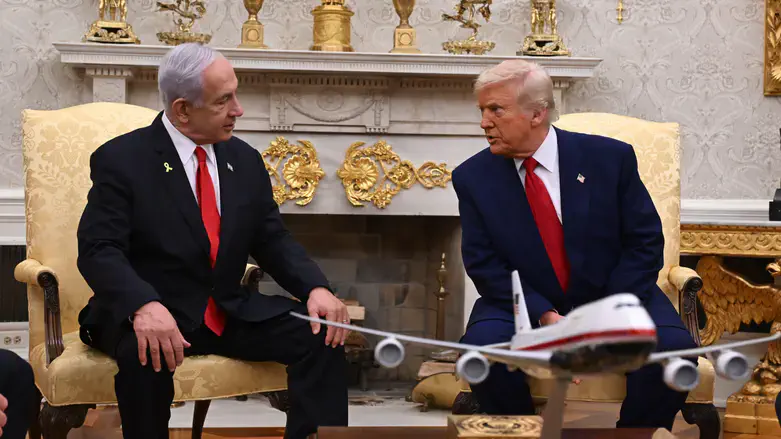
The Prime Minister's Office responded on Thursday to a report by The New York Times that US President Donald Trump stopped an Israeli plan to strike Iran's nuclear facilities.
"Prime Minister Netanyahu has been leading the global campaign against the Iranian nuclear program for over a decade, even when there were those who belittled the threat and called it a 'political spin' and the Prime Minister 'paranoid.' The Prime Minister led countless overt and covert actions in the campaign against Iran's nuclear program; thanks to them, Iran does not have a nuclear arsenal," the Prime Minister's Office wrote in a statement.
It added: "The actions set Iran's nuclear program back by a decade, and that's thanks to the Prime Minister's insistence to stand up against the opposition from within and out to his aggressive policy against Iran. As the Prime Minister declared more than once: Israel will not allow Iran to obtain nuclear weapons."
According to the New York Times report, Israeli military officials had developed and prepared plans for a potential assault on Iran’s nuclear infrastructure as early as May, but the operation was recently halted after US President Donald Trump opted to prioritize diplomacy with Tehran.
Sources familiar with the sensitive military deliberations said the proposed Israeli strike aimed to delay Iran’s nuclear program by a year or more. The effort, however, hinged on extensive US involvement, both to ensure the mission’s success and to defend against Iranian retaliation.
Preparations for a potential conflict had already been underway, according to The New York Times. US Central Command, under Gen. Michael Kurilla, deployed significant military assets to the region, including aircraft carriers, missile defense systems, and stealth bombers capable of targeting Iran’s underground facilities. While these assets were partly intended for countering Houthi attacks in Yemen, officials acknowledged their dual-use potential in a broader Iran conflict.
Despite this military buildup, high-level voices within the Trump administration expressed growing skepticism about the feasibility and consequences of an Israeli-led attack. Director of National Intelligence Tulsi Gabbard presented intelligence suggesting such an operation could spiral into a broader regional war, an outcome the White House was determined to avoid.
The report also stated that, as of now, Washington’s position remains unchanged: negotiations first, military action only if talks collapse.
Yisrael Hayom views the New York Times article as an intentional leak warning Iran that Israel and the United States have attack plans already in place and thereby encourage them to take the negotiations seriously.
On the other hand, according to Seth Mandel of Commentary Magazine, the New York Times article is the Gabbard faction's leak meant to torpedo a strike on Iran, so that "the primary purpose of the article is not as a record of internal deliberations but as an instrument of policy itself. Namely, to obstruct future U.S. and Israeli foreign policy by divulging enough details of Israel’s plans in order to protect Iran’s nuclear sites. The idea is to force Israeli planners back to the drawing board, thus delaying a possible future strike on Iran until Iranian air defenses have been rebuilt." At which point, he predicts, Iran will leave the negotiating table.

